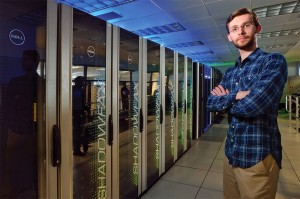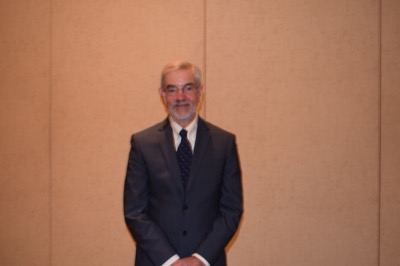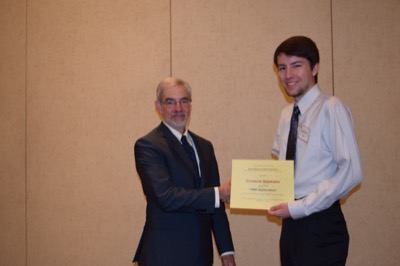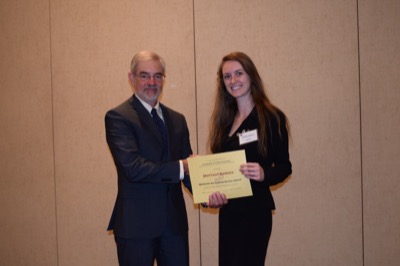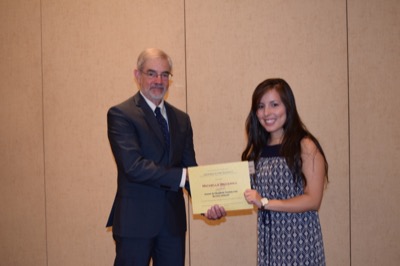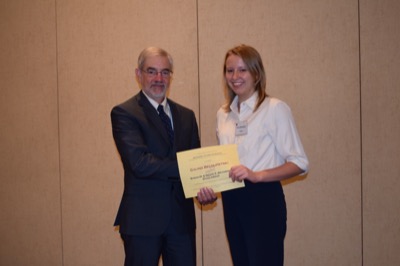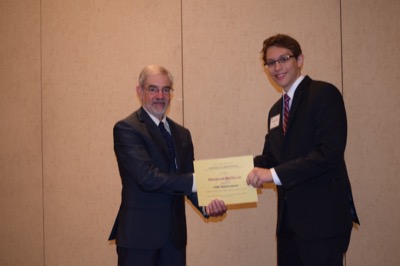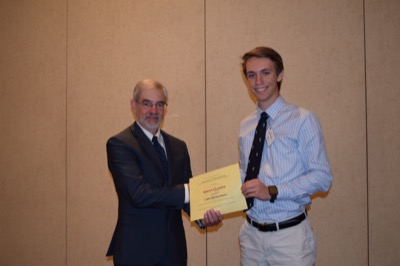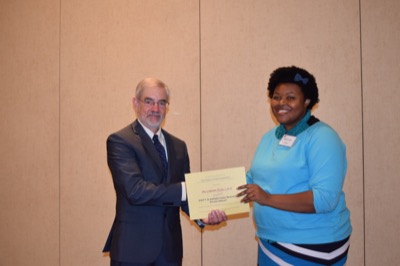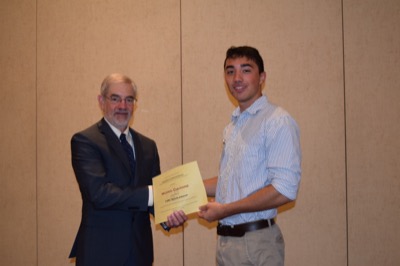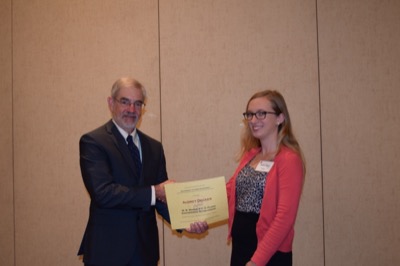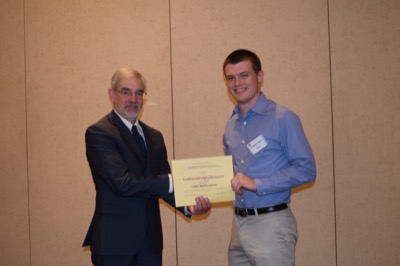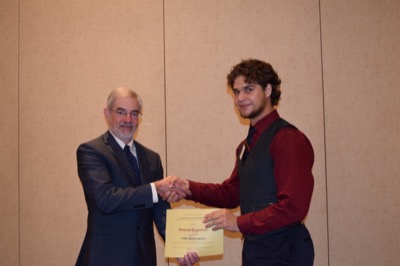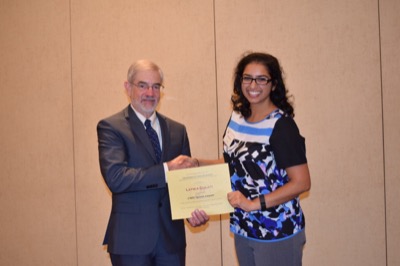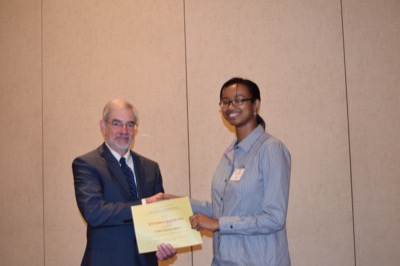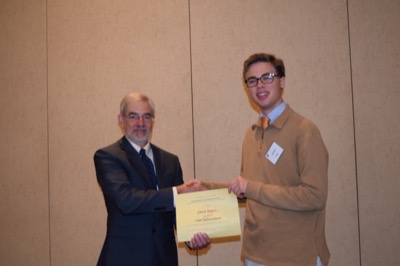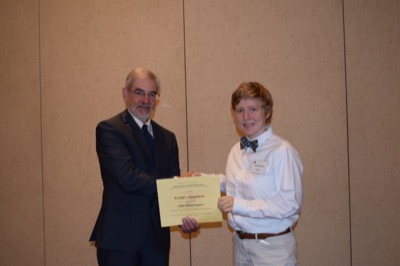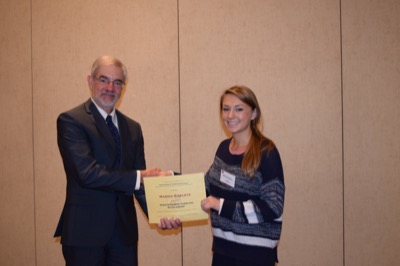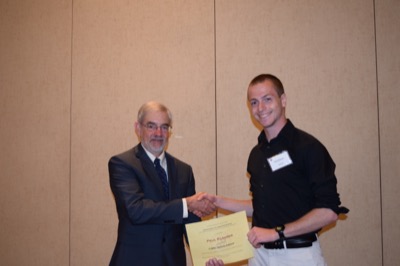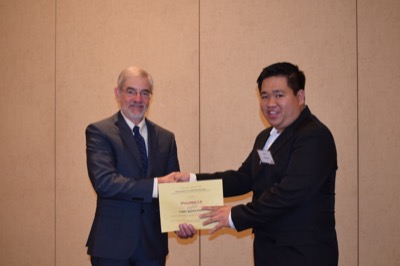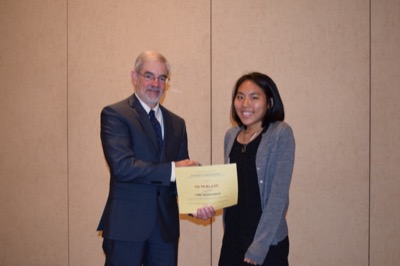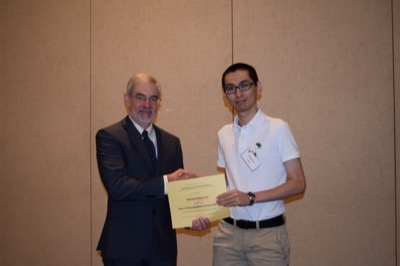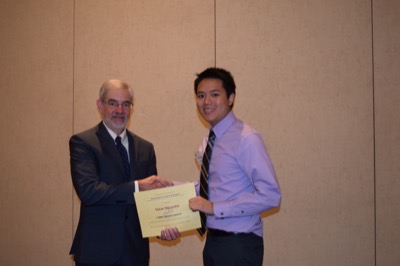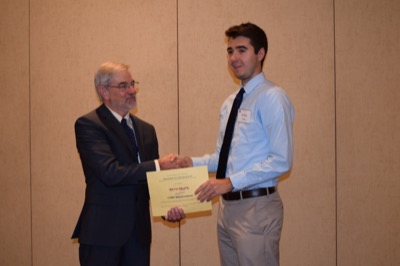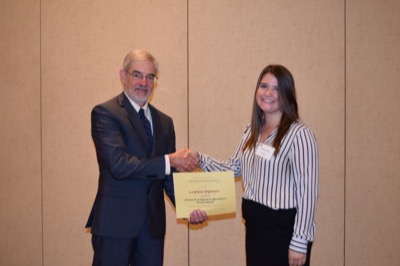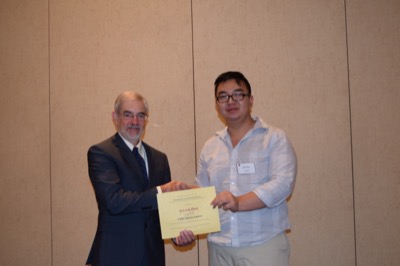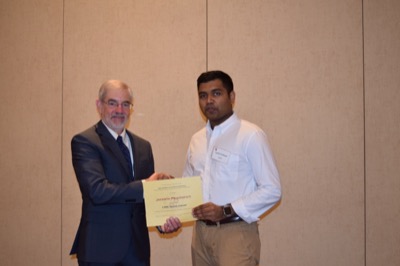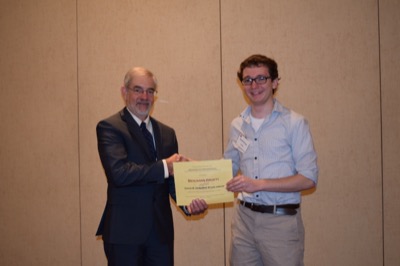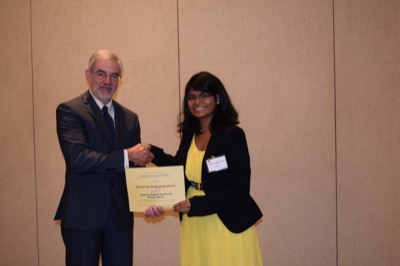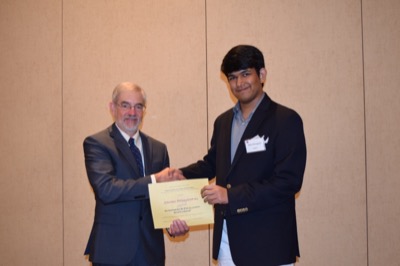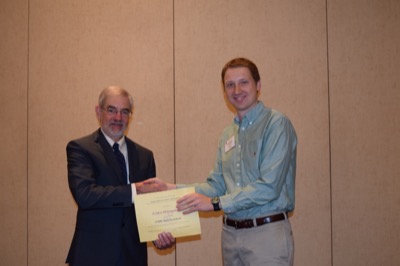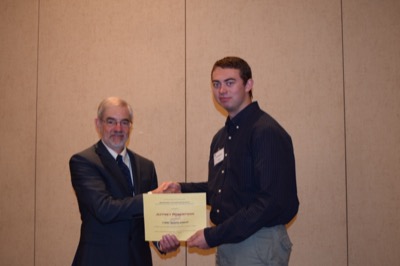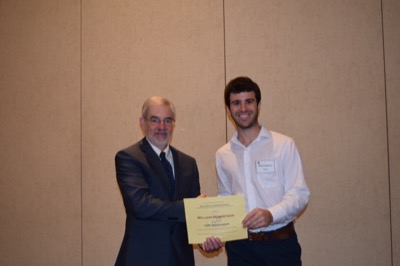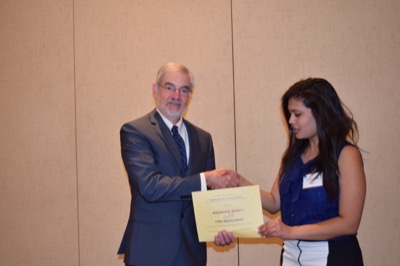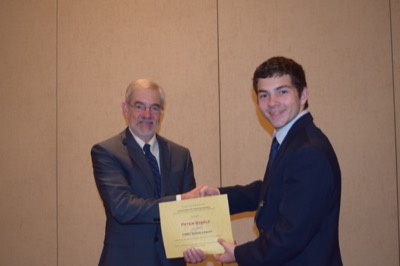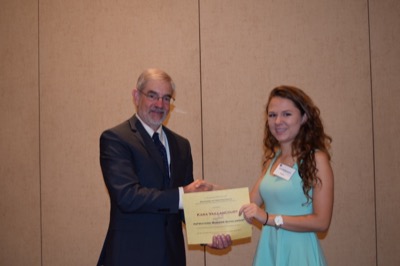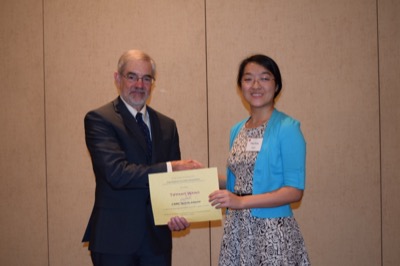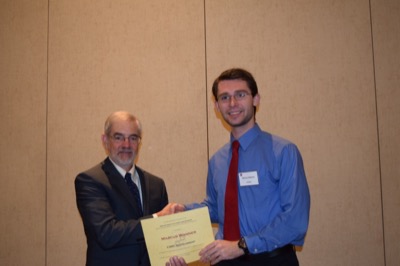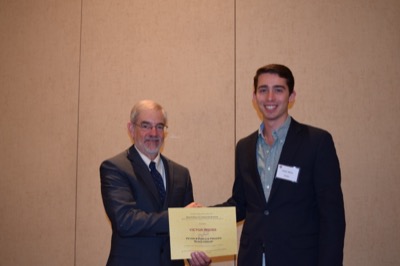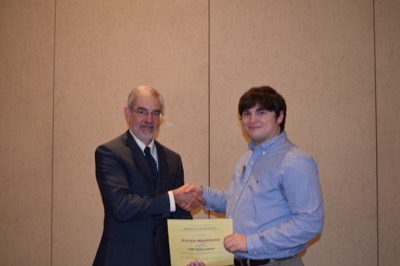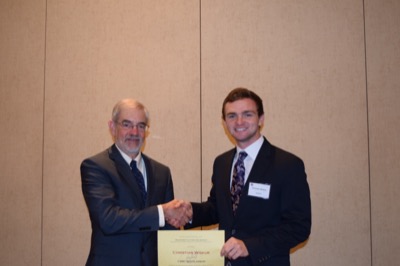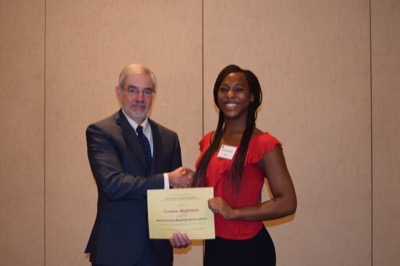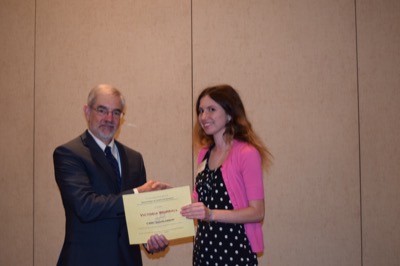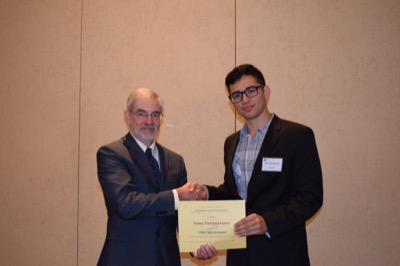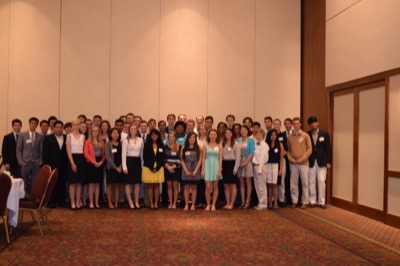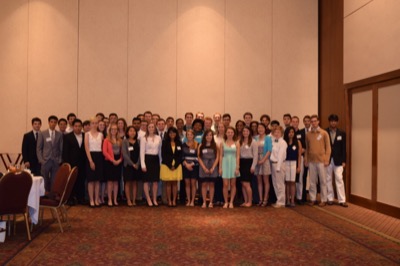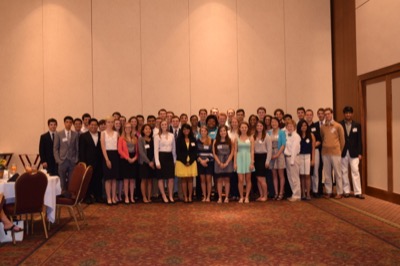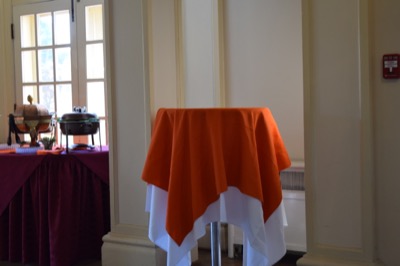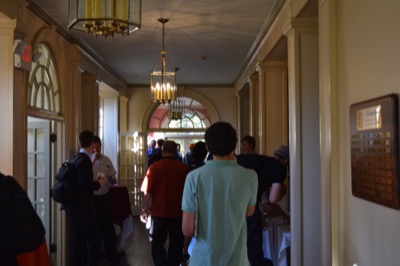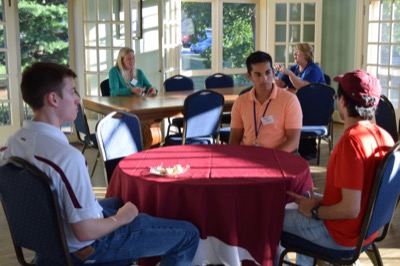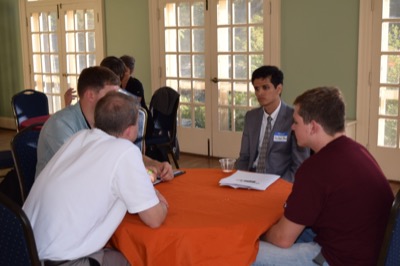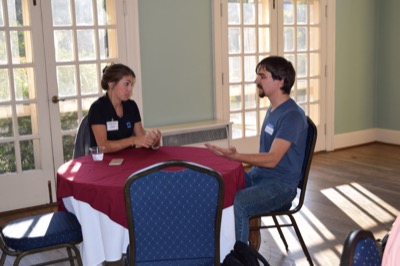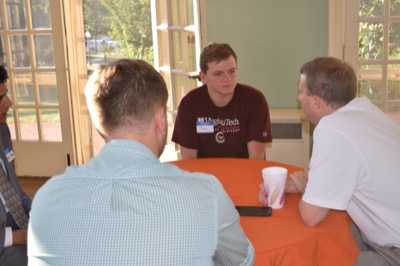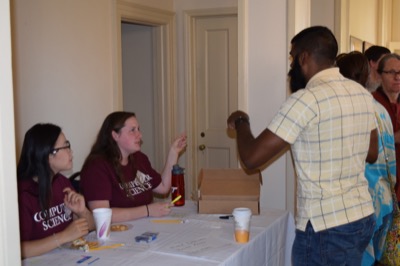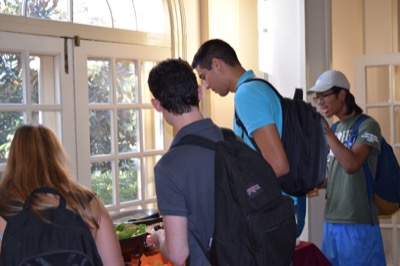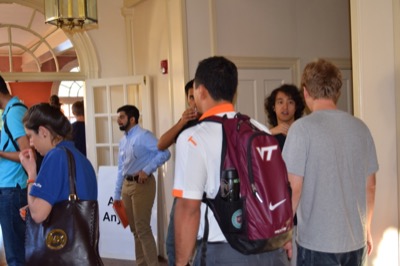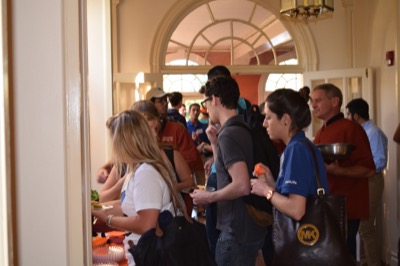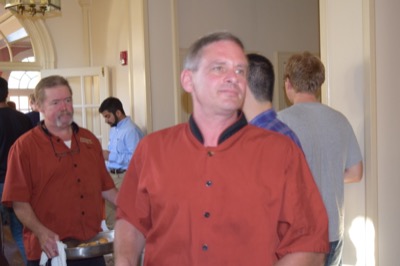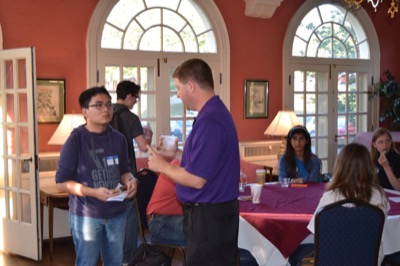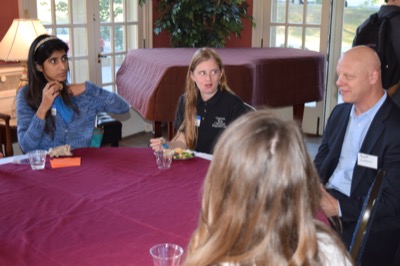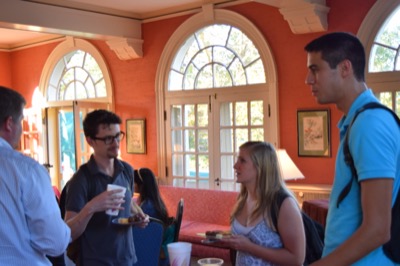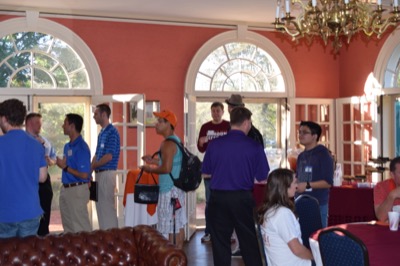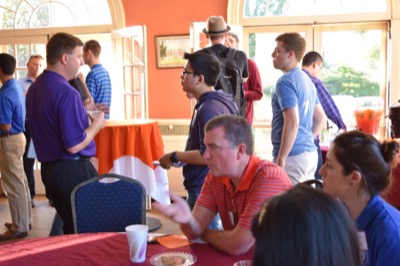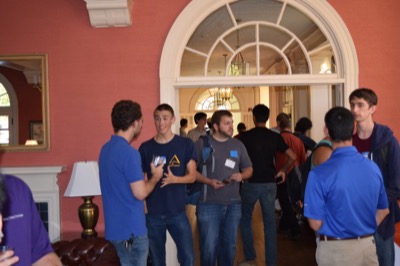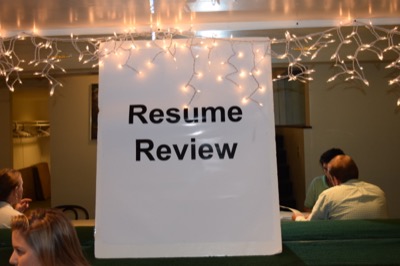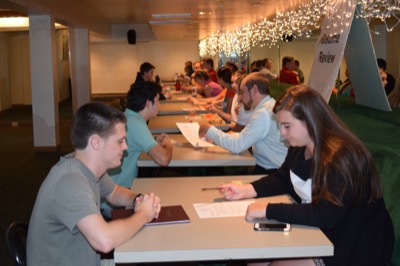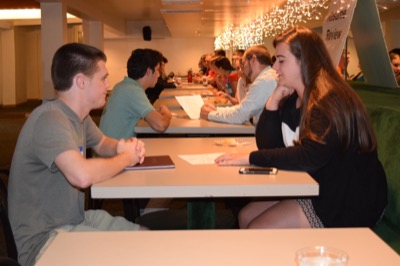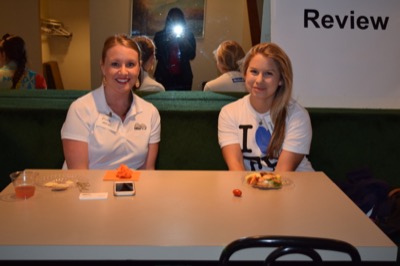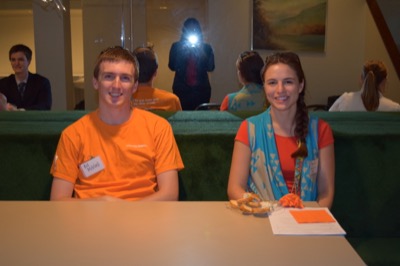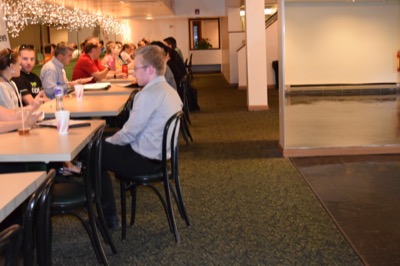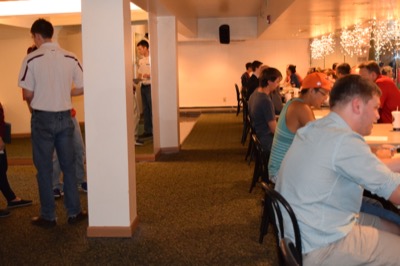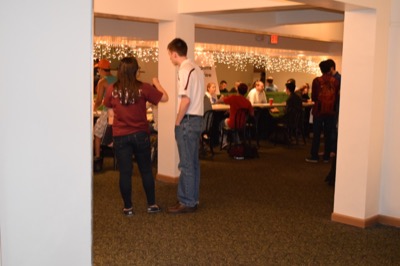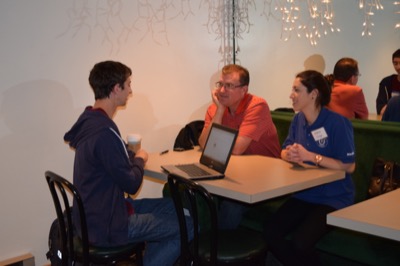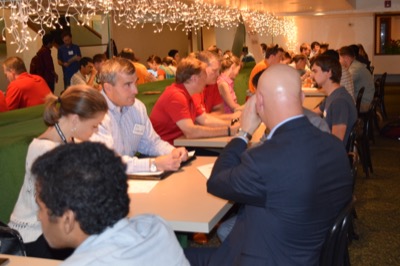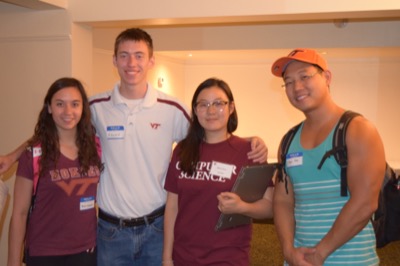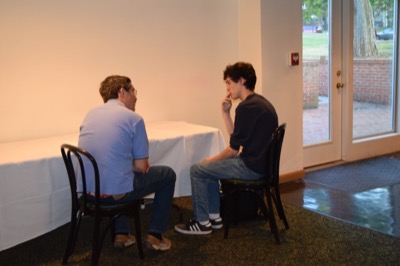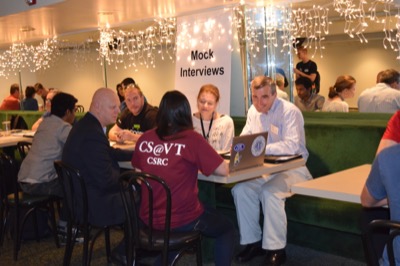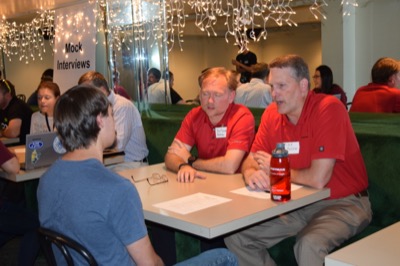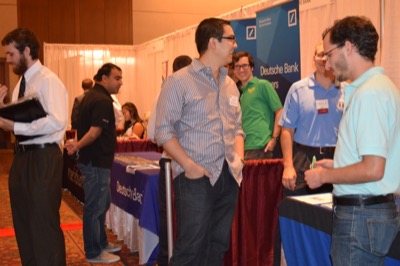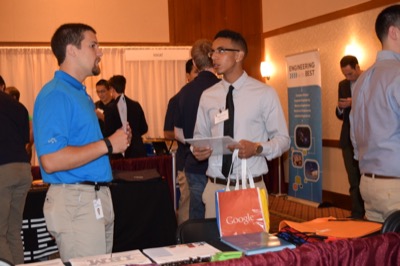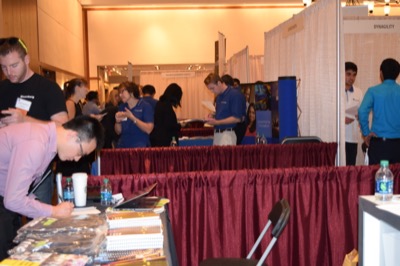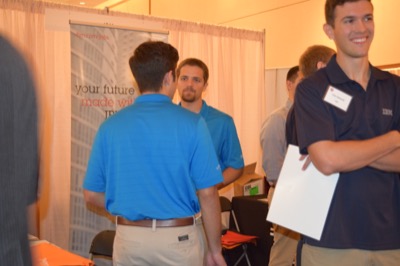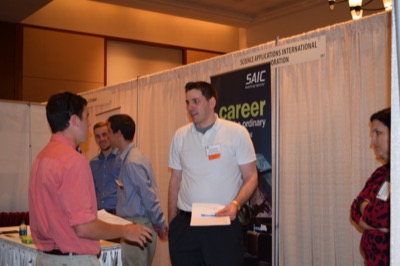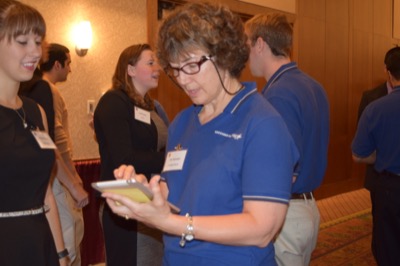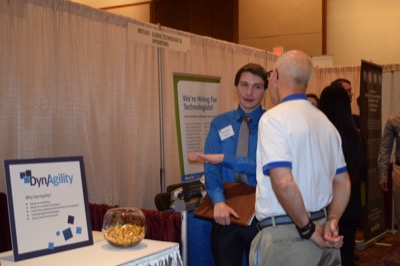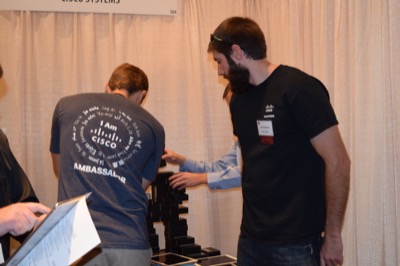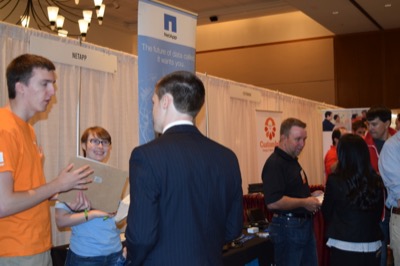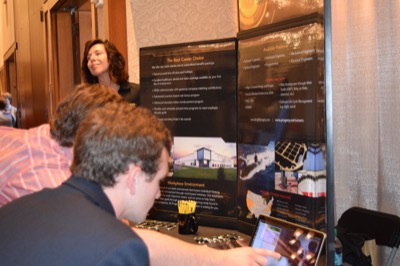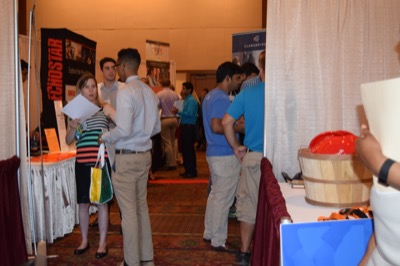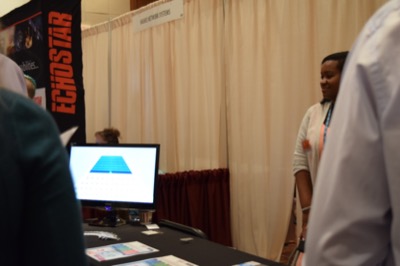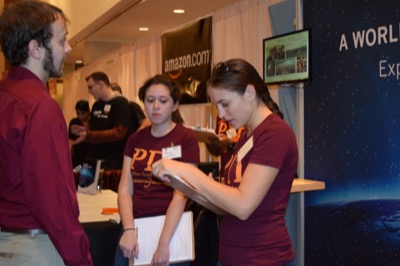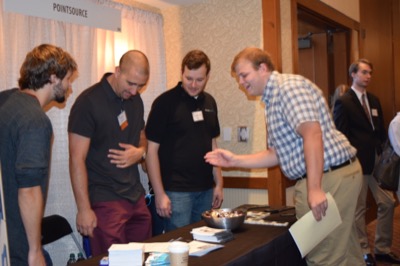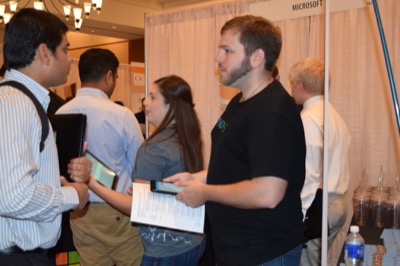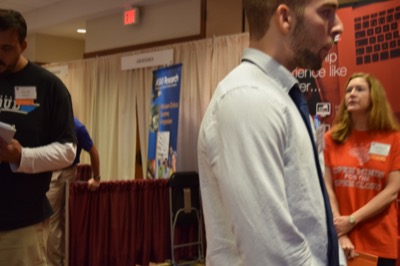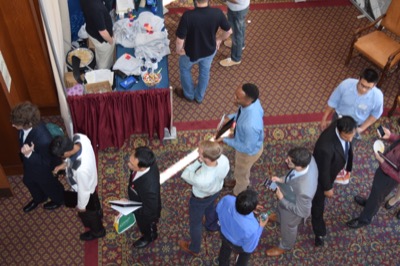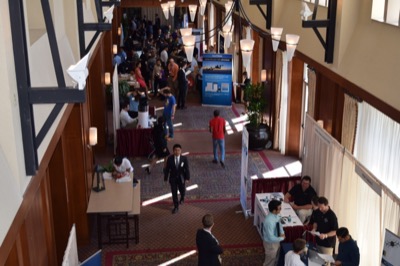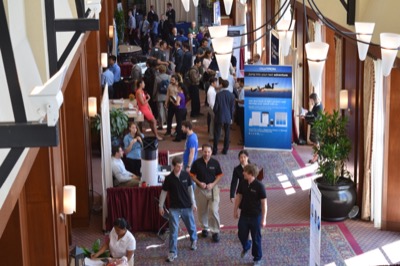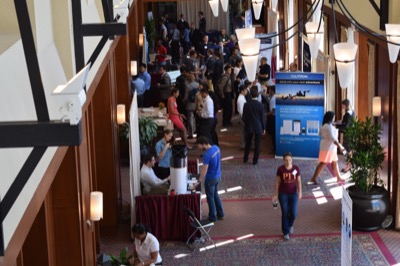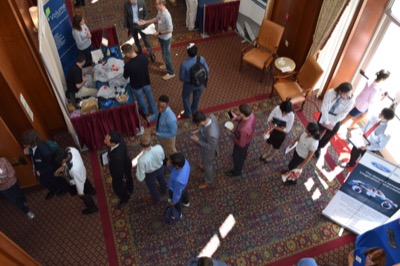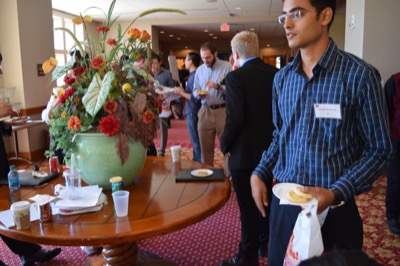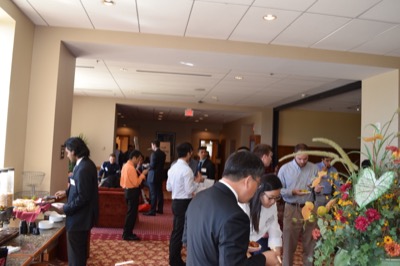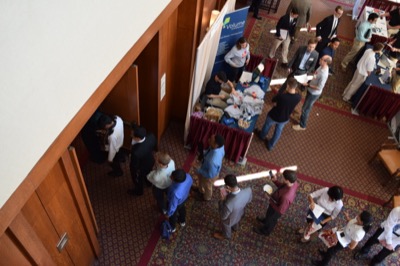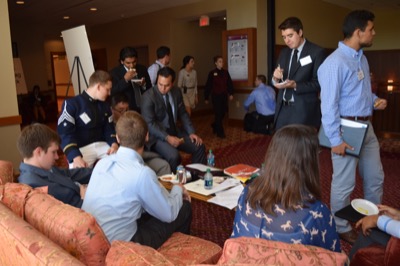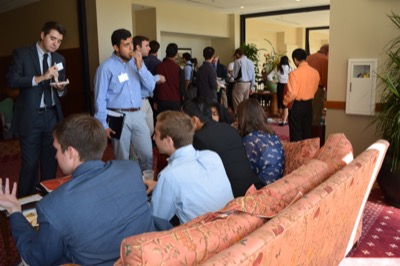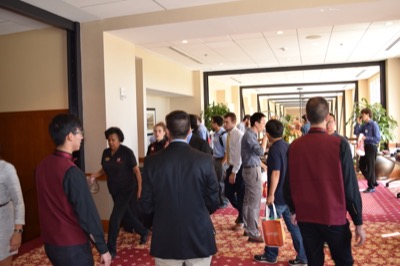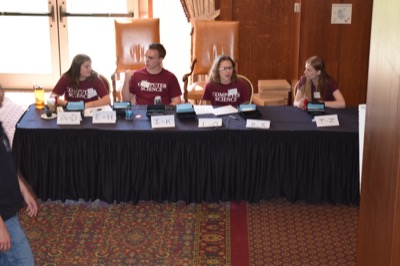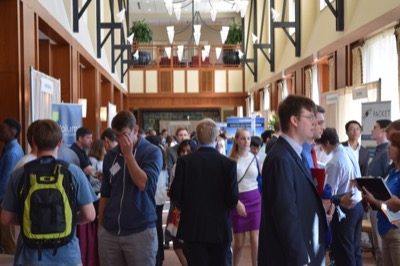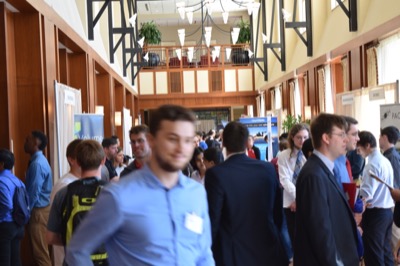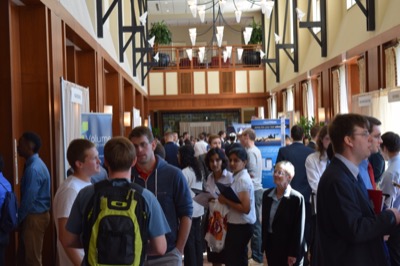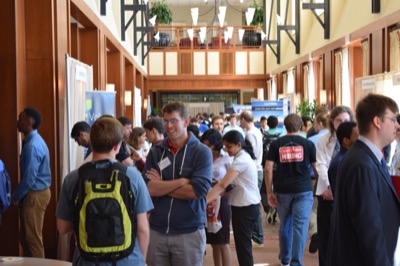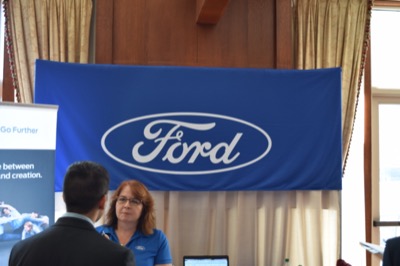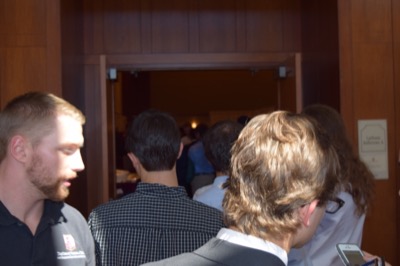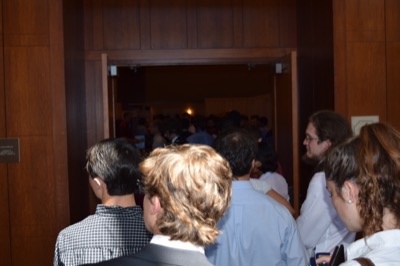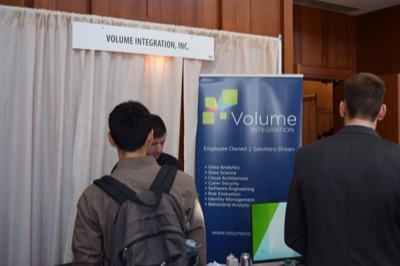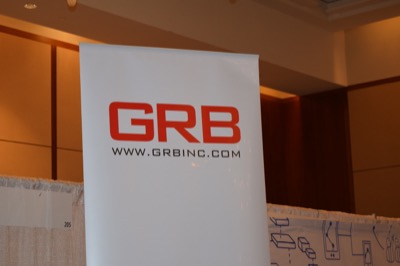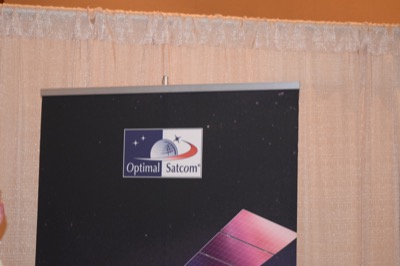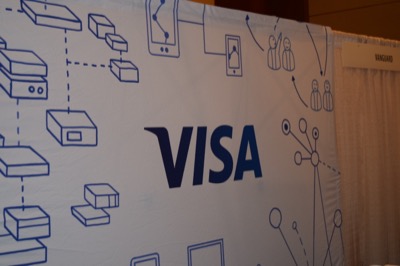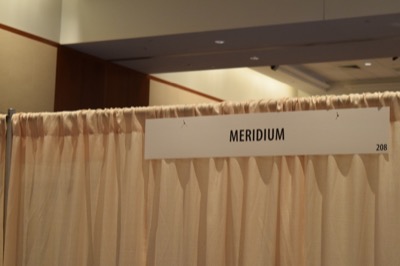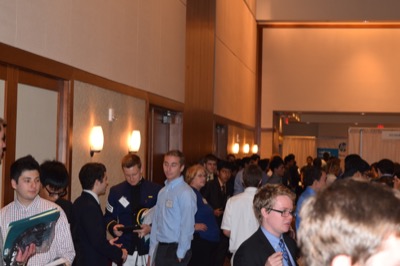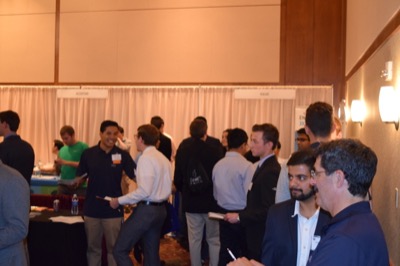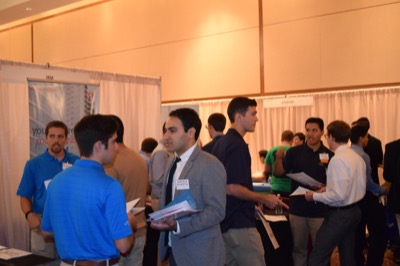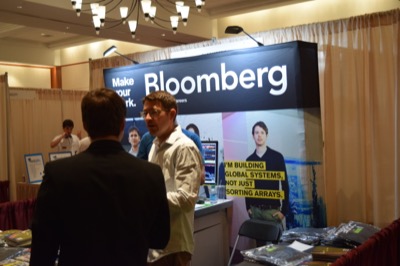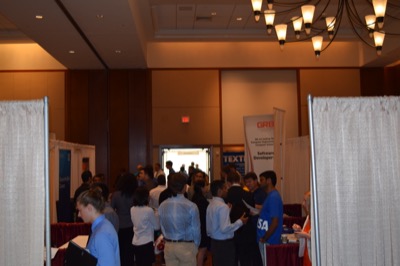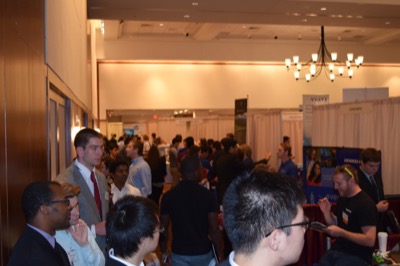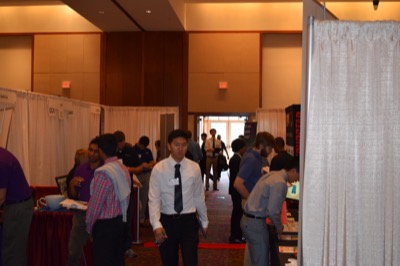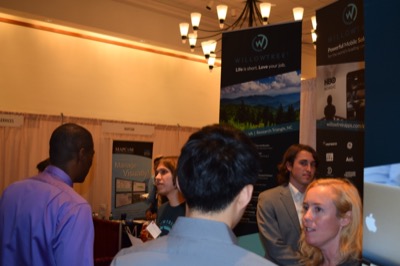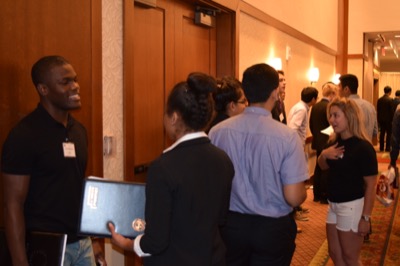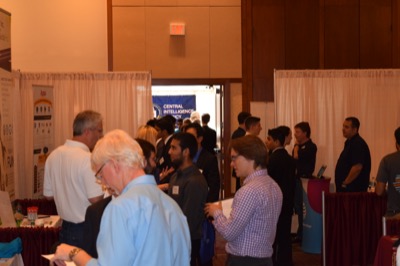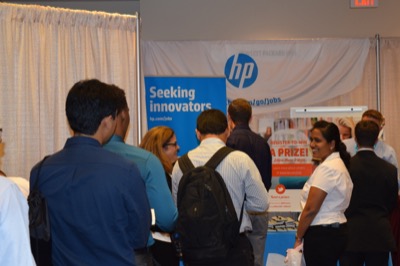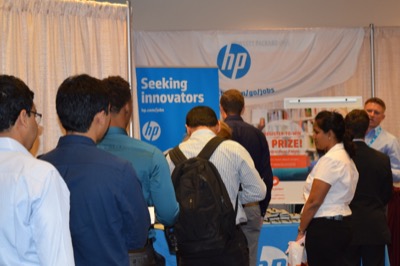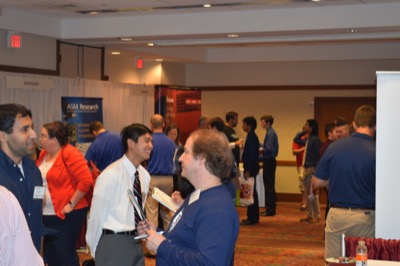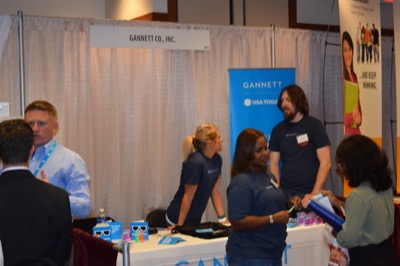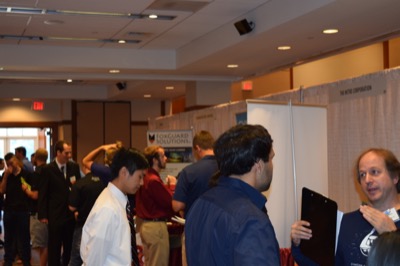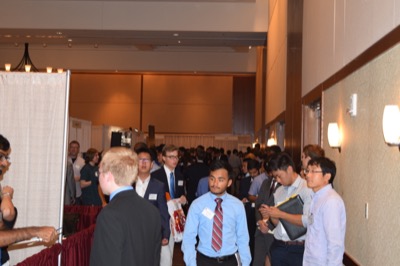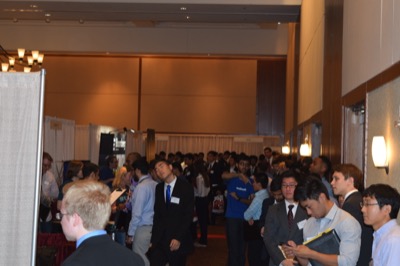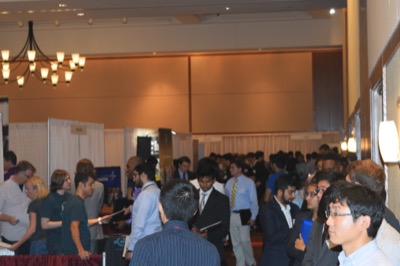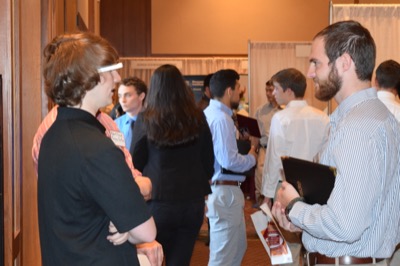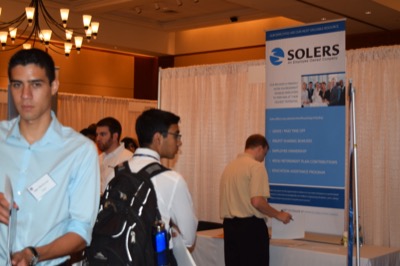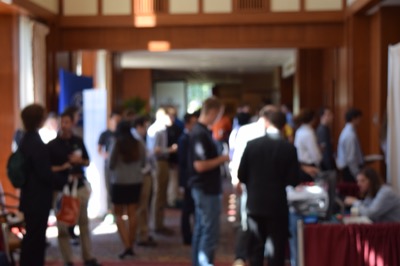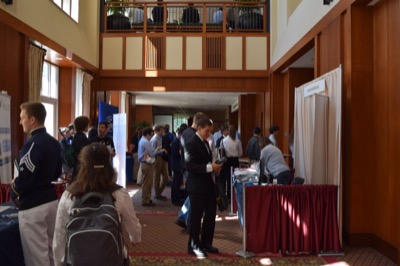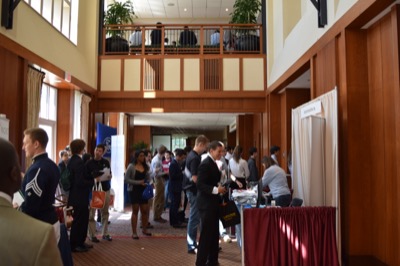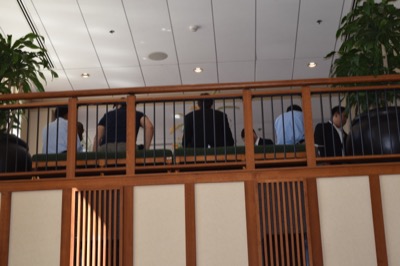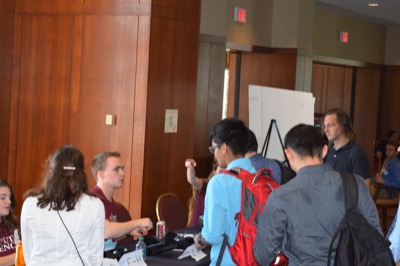Author: laurie
Professor Yao part of multidisciplinary team awarded $1.1 million grant to focus on smart city infrastructure
Danfeng Yao, an associate professor of computer science and head of the Human-Centric Security Laboratory is part of a multidisciplinary team awarded $1.1 million grant to focus on smart city infrastructure. Read More

Kurt Luther and Chris North receive $500,000 NSF grant
CS professors Kurt Luther and Chris North were recently awarded an NSF grant for a project titled “Supporting Crowdsourced Sensemaking in Big Data with Dynamic Context Slices”. Dr. Luther, is principal investigator and Dr. North is co-principal investigator. Kurt Luther is assistant professor in computer science and Chris North is associate director for the Discovery Analytics Center. The three year $500,000 grant will start on October 1, 2016 and go until September 30, 2018. Read the full abstract below or click here:
This research will investigate how crowdsourcing and computational techniques can be combined to support the efforts of an individual analyst engaged in a complex sensemaking task, such as identifying a threat to national security or determining the names of people and places in a photograph. Currently, such complex tasks are beyond the capabilities of the most advanced machine learning techniques or crowdsourcing workflows, and even trained experts struggle to perform them. Huge quantities of data are now available online, but making sense of them is challenging because human cognition, while remarkably powerful, is nevertheless a limited resource. We will experiment with different crowd workflows to develop a revised sensemaking loop, optimized for the relative strengths of crowds and computation, and develop a software prototype based on this approach. At the core of the software design is the novel concept of “context slices,” an innovative technique for addressing the transience of crowd workers by giving them only the information they need to complete their assigned task, allowing complex investigations to be pursued across multiple workers.
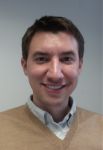

Department Accomplishments
Dear CS@VT Supporters,
I want to express my pride at having served the past 7 years as department head of CS@VT. I came to Blacksburg 7 years ago to a new job – to lead a group of faculty whom I judged to be highly collegial and collaborative with strong interdisciplinary interests. I was attracted to their energy and openness to change and self-improvement. I was quite excited to move to Virginia Tech and to start my new leadership position.
Over my years here, the department has faced many challenges including budget cuts. ABET accreditation assessments (new to us since we joined the College of Engineering), numerous faculty hiring interviews, expansion of our CS staff, and more recently steeply rising undergraduate enrollment, as is happening across the country.
At our annual retreat earlier this month, we reviewed our progress on our educational and research missions – here are some highlights:
- In AY 2014-15 we graduated more than twice as many CS bachelor’s degrees than in 2008-09 (182 in AY2014-15)
- Today we have more than twice as many CS majors today than in Fall 2008 (594 in Aug 2015)
- Today we have 14% female CS majors as a 2 year average while in 2008 we had only 5%
- Our number of Ph.D. degrees awarded annually is up to a 4 year average of 23
- Our percentage female M.S. and Ph.D. degree awardees are well above CRA Taulbee national averages for CS depts in public universities (CS@VT: 28% MS, 28% Ph.D.)
- Today we have more than double the total research funding that we had in fall 2008 (current $43.4M)
- In FY15 we had almost 3 times the research expenditures per tenure track faculty member than in fall 2008 ($412,000 vs $150,000)
In addition, during the past 7 years we strengthened the graduate program by emphasizing research in our master’s program, and opting to concentrate on our Ph.D. productivity. We instituted annual student activity reports and Green Thursday – to make sure each Ph.D. student benefited from an annual review by the faculty as a whole. Recently, we created Draft Day to enable research groups to work together on graduate admissions. Also, we strengthened our involvement of undergrads in research, resulting in a larger VTURCS annual poster session with CSRC representatives and faculty serving as judges. CS@VT undergrads were finalists twice and won honorable mention 4 times during this period in the CRA Undergraduate Research Awards Competition.
Our faculty received many external honors including 2 Virginia Outstanding Faculty Awards, 4 ACM Distinguished Scientist awards and 1 ACM Distinguished Educator award. As a measure of our increased external visibility, it was wonderful last year to have the department rise 6 steps since 2008 to #40 in the USN&WR rankings.
All of these accomplishments are the result of the hard and effective work of the faculty, staff and students in our department. We should be very proud of our department!
A bit harder to measure but still very important to us, are our numerous activities supporting more gender diversity in faculty and students, and our mentoring programs both for CS students and faculty. We now have 21% female tenure-track faculty members, well above the national average of 17%. And we have between 16-17% women CS majors at our latest update (8/2015). Our mentoring efforts should result in better retention of CS majors and increased faculty productivity.
But what really matters in a department are its people—its faculty, staff and students. And we are fortunate to have a wonderful, good-humored, productive community.
It has been an honor and privilege to be CS@VT department head. I realize that now, without even thinking about it, I talk about “my department” with a sense of pride and ownership; this feeling of identification with the department will not go away. As I “step down” as department head and rejoin the professorate, I am very proud of our accomplishments and optimistic about the department’s bright future.
Sincerely,
Dr. Barbara G. Ryder
Former Head, Department of Computer Science
Byron Maupin Professor of Engineering
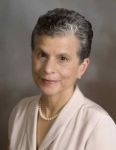
Google Faculty Research Award Recipients
Dongyoon Lee and Changhee Jung, assistant professors in computer science, have been selected for a Google Faculty Research Award. The project is entitled “TxRace: Efficient Data Race Detection Using Commodity Hardware Transactional Memory”. Read the full abstract below or click here:
Detecting data races in multithreaded programs is crucial for ensuring their correct execution, but the high runtime overhead prevents the wide use of dynamic data race detectors. We propose TxRace, a new software data race detector that leverages commodity hardware transactional memory (HTM) to speed up data race detection. TxRace instruments a multithreaded program to transform synchronization-free regions into transactions, and exploits the conflict detection mechanism of HTM for lightweight data race detection at runtime. However, the limitations of the current commodity HTMs expose several challenges in using them for data race detection: (1) frequent transaction abort due to non-conflict reasons (e.g., unknown or capacity), (2) lack of ability to pinpoint racy instructions, and (3) cache line granularity of conflict detection leading to false positives. To overcome such challenges, this proposal seeks to build an efficient, practical tool that performs lightweight HTM-based data race detection at first, and occasionally switches to slow yet precise data race detection only for small fraction of execution intervals in which potential races are reported.
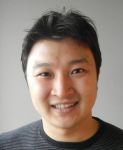
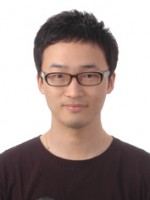
The department welcomes 4 new CS@VT faculty
The College of Engineering (COE) is pleased to present 34 new faculty for the 2015-16 academic year. The Department of Computer Science welcomes four new CS@VT faculty members.
Aisling Kelliher
For the past three years Aisling Kelliher has worked at Carnegie Mellon University’s (CMU) School of Design as an associate professor, where she also served as adjunct faculty in CMU’s Human-Computer Interaction Institute (HCII). She co-directed CMU’s Masters in Tan-gible Interaction Design program in the School of Architecture and lead transdisciplinary research in the Visible Process Lab. Kelliher creates and studies interactive media systems for enhancing reflection, learning, healing, and communication. Her work is grounded within the fields of human-computer-interaction, multimedia, and interaction design, and is motivated by a desire to integrate computational processes into everyday mediated experi-ences. Her current research explores the role of design in multiple interdisciplinary contexts including healthcare, learning cultures, and future studies. Working with colleagues in computer vision and machine learning, she is developing a home-based interac-tive neurorehabilitation system for stroke survivors. She has also worked on developing XSEAD.org, an online platform supporting networks of creativity and innovation across science, engineering, art, and design. The platform is currently being extended to support MakeSchools.org, a shared online knowledge base for U.S. universi-ties involved in the maker movement. Kelliher is also an advocate of speculative design practice and engages in research integrating design and future narratives. Findings from her research have been published in high-impact journals and conferences including ACM Multimedia, SIGCHI Conference on Human Factors in Computing Systems, World Wide Web, International Symposium on Electronic Arts, Futures Journal, and exhibited at leading national venues including SIGGRAPH, the Arizona State University Art Museum, and the DeCordova Museum. Her research is supported by grants from the MacArthur Foundation, SIU Norway, and the National Science Foundation. She serves as a reviewer for more than 15 journals and confer-ences and will be one of the program chairs for the ACM Multimedia conference in 2016. She writes a regular column called “Artful Me-dia” for the Institute of Electrical and Electronic Engineers’ MultiMe-dia magazine, and is also the technical correspondent for the radio show “Culture File,” broadcast weekly on Irish national radio. A native of Dublin, Kelliher holds a bachelor’s degree in commu-nications studies from Dublin City University and a master’s degree in multimedia systems from Trinity College, Dublin. In 2007, she graduated from the MIT Media Lab with a Ph.D. in media, arts, and sciences.
Na Meng
After receiving her doctorate in computer science from the University of Texas (UT) at Austin in December of 2014, Na Meng worked as a postdoctoral researcher, with her advisors: Miryung Kim and Kathryn S. McKinley. For the past six years she has focused her UT work on: generating program transformations from code change examples; locating and applying systematic edits by learning from examples; and exploiting systematic edits for refactoring. She also worked as a research intern with the RISE group at Microsoft Research during the fall of 2013. While in this position, she designed and implemented an approach to improve accuracy of applications that base computations on noisy estimated data from hardware sensors, machine learning, and crowd sourcing. Her approach, when implemented in a specific game called Simon, improved the accuracy from 60 percent to 89 percent. Her teaching experience includes two semesters in the class-room at Peking University and one at UT. She worked as a teaching assistant for a graduate level software engineering course and an undergraduate level software engineering course. Among her honors, Meng received an IBM scholarship in 2004 and a Hewlett-Packard scholarship in 2005. Northeastern University in China awarded her an Excellent Bachelor Thesis for her work in the software engineering department in 2006. Peking University presented her with its Excellent Learning Award in 2007. UT’s College of Natural Sciences honored Meng with a Dean’s Excellence Award. She is a reviewer for the Journal of Systems and Software. She was a reviewer of the 2015 Artifact Evaluation for CGO and PPoPP and the 2015 12th Working Conference on Mining Software Repositories. In 2013 she was a reviewer for the Journal of Empirical Software Engineering. She served as a sub-reviewer for the following: the 2014 International Symposium on Foundations of Software Engineering; the 2011 International Conference on Software Maintenance; the 2011 Conference on Programming Language Design and Implementation; and the 2010 International Symposium on Empirical Software Engineering and Measurement. She has 11 publications to her credit.
Alla Rozovskaya
For the past two years Alla Rozovskaya has worked on an automated system for a spelling and grammar correction project for the Arabic texts as a postdoctoral research scientist at Columbia University’s Center for Computational Learning Systems. With a 2013 doctorate in computational linguistics from the University of Illinois at Urbana-Champaign, she has worked on natural language processing (NLP), statistical and machine learning methods in NLP, and NLP for educational purposes and for social media. Rozovskaya has three master’s degrees to her credit. Two are also from the University of Illinois: computer science in 2010 and linguistics in 2007. Her third master’s degree is in French studies, received in 2003 from the State University of New York at Albany. Her undergraduate degree in English philology with honors was received in 1997 from the Institute of Foreign Languages, Tashkent, Uzbekistan. Among her awards, she was an invited participant in the Rising Stars in Electrical Engineering and Computer Science Workshop at the University of California, Berkeley in 2014. With colleagues from Columbia University, she also built an automated system that received a top ranking in the CoNLL Shared Task on Grammatical Error Correction in English, also in 2014. The 2014 QALB Shared Task on Automatic Arabic Error Correction awarded Rozovskaya and her same colleagues first place for the automated system they built. With collaborators at the University of Illinois, she built an auto-mated system that ranked first in several international competitions in text correction in English. These competitions were: Helping Our Own, 2011; Helping Our Own, 2012; and CoNLL Shared Task, 2013. With collaborators while obtaining her linguistics and computer science master’s degree, she built a semantic parser that ranked first in the SemEval-2007 Shared Task on Classification of Semantic Relations between Nominals. While at Illinois, she received a Beckman Cognitive Science/Artificial Intelligence Summer Fellowship in 2007. She also had a departmental fellowship that same year. Rozovskaya is a reviewer for the following publications: Journal of Natural Language Engineering; Transactions on Asian Language Information Processing; Traitement Automatique des Langues Journal; and Information Processing and Management Journal. She has served on 14 national and international conference program committees.
Francisco Servant
Francisco Servant received his doctorate in software engineering in June 2015 from the University of California, Irvine. His master’s diploma in information and computer sciences was awarded six years earlier from the same university. He received his bachelor’s degree in computer science in 2005 from the University of Granada, Spain. For the past seven years he has worked as a graduate student assistant, conducting research in mining software repositories, software analysis, and computer-supported collaborative work. His research focuses on software development productivity and software quality. He uses software evolution analysis and program analysis to create practical, efficient, and human-friendly techniques and tools that provide automatic support for all stages of software development. He held three different internships: with Microsoft Research, Redmond, Washington, summer of 2011; DreamWorks Animation, Glendale, California, summer of 2008; and Valeo Lighting Systems, Martos, Spain, fall of 2004. He also worked as a development sup-port engineer for Microsoft Corporation of Madrid, Spain from July 2005 until July 2007. Servant has six peer-reviewed publications and ten invited presentations. He served as a teaching assistant in six different courses and was a guest lecturer in another four. All were in the software engineering area. He is a reviewer for the Journal of Internet Services and Applications, the Journal of Systems and Software, and the Central European Journal of Computer Science. He served as an external reviewer for: the 2014 International Symposium on the Foundations of Software Engineering; the 2012, 2013, and 2014 International Conferences on Software Engineering; and the 2013 Working Conference on Software Visualization, both the Tool Track and the NIER Track. He also served in the program committee of the 2012 International Conference on Program Comprehension, Tool Track, and the 2012 International Working Conference on Mining Software Repositories, Mining Challenge Track. Among his awards, he held the Caja Madrid Foundation Fellow-ship for Graduate Studies from 2007 until 2009, a Dean’s Fellowship from the Donald Bren School of Information and Computer Sciences from 2009 until 2013, a SIGSOFT-CAPS Travel Award for ICSE in 2012, and a National Science Foundation Award for VISSOFT in 2013. He is a member of the Institute of Electrical and Electronic Engineers, the Association for Computing Machinery, the Special Interest Group on Software Engineering, and the Institute for Software Research at the University of California, Irvine.
Read More about the 34 new COE faculty.
Engineering students launch experimental 3-D printer on NASA rocket ship
How would a 3-D printer work in the microgravity of suborbital space after surviving a jarring ride 100 miles above the earth? A group of Virginia Tech College of Engineering students answered that after a launch at NASA’s Wallops Flight Facility. The use of a 3-D printer in space is not new. A 3-D printer is on the International Space Station. But this is the first time such a printer was used on an unmanned rocket during flight, said Virginia Tech RockSat-X team leader Sebastian Welsh of Chadds Ford, Pennsylvania, and senior in the department of computer science.
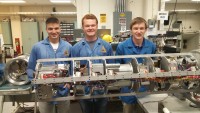
Dr. Changhee Jung and Dr. Dongyoon Lee receive a NSF award
Changhee Jung and Dongyoon Lee, assistant professors in computer science, received a NSF award for a project titled “Compiler and Architectural Techniques for Soft Error Resilience”. Professor Jung is the principal investigator and Professor Lee will serve as co-principal investigator. Read the full abstract below or click here:
Due to technology scaling, electronic circuits are becoming more susceptible to radiation-induced soft errors also known as transient faults. Soft errors may lead to application crash or even worse, silent data corruptions (SDC) that are not caught by the error detection logic but may cause the application to produce incorrect output. Another serious problem is the rise of detected unrecoverable errors (DUE) that often directly impact the reliability of any computer applications. The challenge is to achieve soft error resilience in a way that does not significantly increase the performance overhead, power consumption, and complexity of underlying hardware. To this end, this project designs and develops low-cost hardware/software cooperative techniques for soft error resilience. The resulting artifacts and technologies are expected to contribute to the nation’s competitiveness by addressing the challenge of building reliable computing systems in the presence of soft errors.
This research involves three intermediate research goals: design novel microarchitecture, that dynamically verifies the correctness of the processor core execution based on sensor-based soft error detection, to achieve soft error resilience at low cost; design a compiler that forms verifiable and recoverable regions in the presence of soft errors and provides relevant program analysis techniques; and design and develop compiler optimization and microarchitectural techniques that significantly reduce the verification overhead. This project will create tools and technologies for realization of soft error resilient computing systems, contributing fundamentally to the fault tolerance research community. Adoption of the resulting compiler and microarchitectural techniques will impact a broad range of any disciplines that need correct computation results thus requiring reliable computing systems, covering from mobile devices to high-performance large-scale computing systems. Consequently, use of the resulting technologies will make the execution of current and emerging applications much more reliable, and therefore directly affect our way of life.
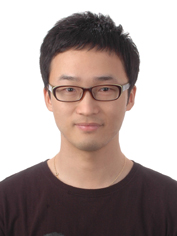

Dr. Ing-Ray Chen receives the 2015 IEEE Communications Society William R. Bennett Prize
Dr. Ing-Ray Chen, NCR Campus CS Program Director and Professor of Computer Science received the 2015 IEEE Communications Society William R. Bennett Prize in the Field of Communications Networking. This award was presented at IEEE 2015 International Conference on Communications in London, UK, during the Awards Ceremony and Luncheon on Tuesday, June 9, 2015 and comes with a plaque and a honorarium of $1,000. Dr. Chen worked together with his PhD graduates, Dr. Fenye Bao and Dr. Jin-Hee Cho, and his former postdoc, Dr. MoonJeong Chang.
Prof. Chen won the award with his paper entitled, ‘Hierarchical Trust Management for Wireless Sensor Networks and its Applications to Trust-Based Routing and Intrusion Detection. Every year the IEEE Communications Society selects an original paper published in the IEEE/ACM Transactions on Networking or the IEEE Transactions on Network and Service Management in the previous 3 calendar years as the winner for this award on the basis of quality, originality, utility, timeliness, and clarity of presentation.
According to Dr. Chen, the paper advances the basic knowledge on defending selfish and malicious nodes in wireless sensor networks (WSNs). The methodology proposed in this paper can be applied to a wide range of WSN applications. Read More Here

Coder, creator
Rising Virginia Tech sophomore Marcus Wanner was a home-schooled 15-year-old when he solved an enigmatic series of cryptographic mindbenders that landed him in the pages of Rolling Stone magazine. Now he’s a computer science major who is applying his experience in cryptography and computer security to genomic research. Read Full Story
